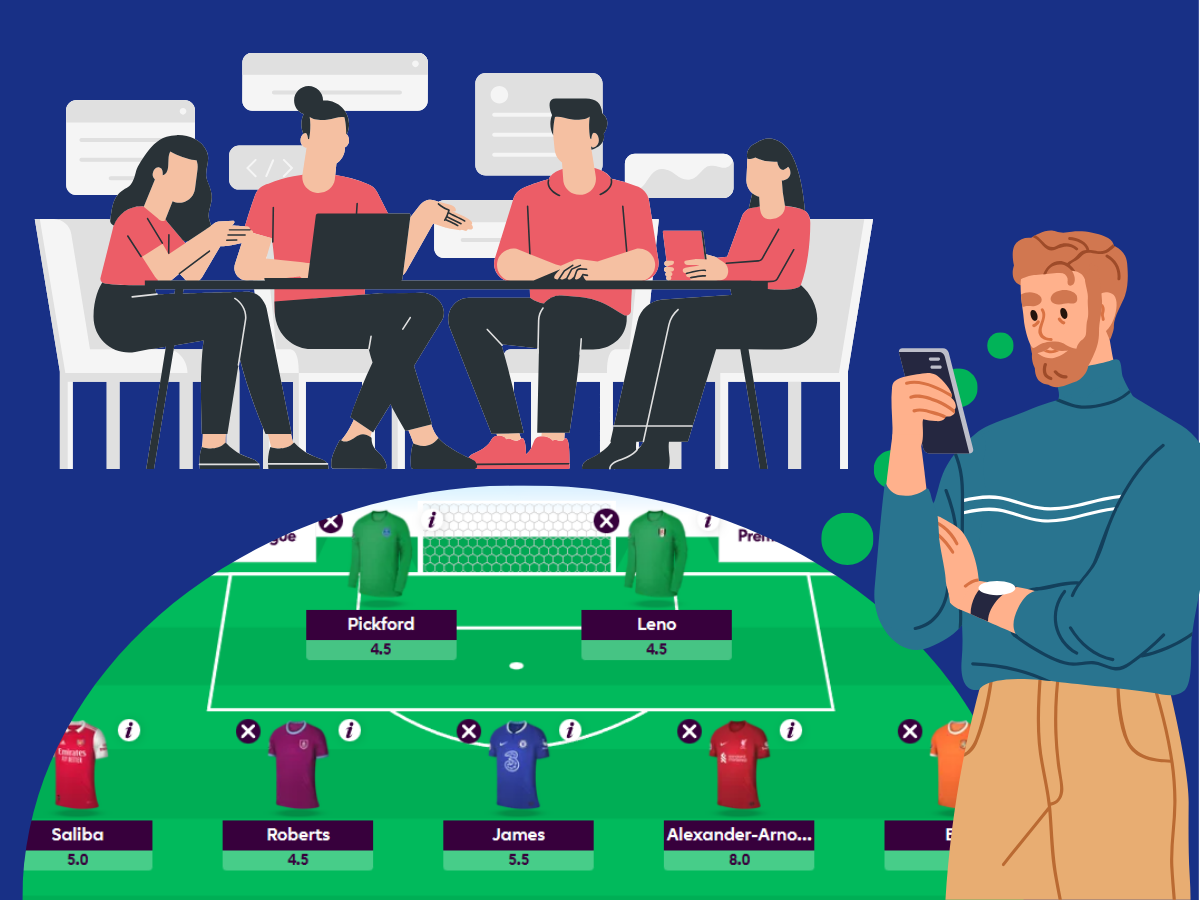League tables and virtual statistics rule the game, where success is not determined by the ability of athletes on the field. The intricate strategy and decision-making are what distinguish champions from contenders in the fantasy football world.
Similarly to the actual Premier League, fantasy offers fans a new opportunity each week for points to add up on the scoreboard, where the importance of mentality becomes unmistakably clear.
It’s easy to focus only on stats and strategies. Yet it’s the ability to make good decisions on a consistent basis that maintains a good mindset that ultimately shapes the league position.
Marc Jobling, writer and broadcaster at Fantasy Football (FF) Scout and an FPL expert for the Premier League, said: “Fantasy football is now a mainstream game, where its popularity leads to template teams.
“That’s why a manager’s mindset is important, as it differentiates the ‘safety first’ decisions from risky, exciting ones.”
The mental impact of Fantasy Football
Dwelling on the players that (Fantasy) players didn’t add to their team, rather than celebrating the good choices made, can lead to constantly trying to catch up by making too many transfers, instead of focusing on improving the team already had.
This behaviour can contribute to feelings of low mood, anxiety, and dissatisfaction.
In a survey led by xGenius, 50% of respondents said they experienced anxiety or other negative emotions related to fantasy football, while 40% felt emotionally drained or burned out.
Supporting this research is Nottingham Trent University, which discovered individuals who were heavily involved in fantasy football were more prone to experiencing feelings of low mood and anxiety when playing the online game.
We found that 30% of individuals said they also had to set boundaries or limits on their fantasy football involvement to prioritise other aspects of their life, while 20% sought professional help or counselling to address issues related to fantasy football.
Top 100 (at one point)
Tom Ryan, 33, from Luton, has played fantasy football for over 5 years and has been consistently in the top users in the world.
He says, “I’ve learned big things don’t depend on value.
“Everyone makes a transfer on a Monday because someone’s going to go up in price and I just ignore it.
“I make my transfers after the press conferences on Fridays, because there’s lots of injuries, especially at the end of the year. So information is way more important than value, which is why I go with the boring captains.”
Through the help of (or luck of…) captaining Erling Haaland from Manchester City and placing Cole Palmer as the trusted Vice-Captain, Tom rose from the bottom of his league on game week 1, to the top 3% in the world by week 13.
At one point he checked his phone to find that he was even in the top 100 people in the world, out of around six million people.
Although, when the final whilst blew on the last game of the season he fell a bit short of reaching the top 100. A great achievement nonetheless.
Tom gives us some advice on how he made it possible, he says, “you try not to be too risky because it’s a long season, so it’s really a marathon, not a sprint.”
“The aim is to limit risk as much as possible and be consistent rather than having a really high scoring game week and then a really low one—you want to be above average throughout the year.”
Tips from a Fantasy writer themselves…
Writing on Fantasy Footballers, a website for the award-winning fantasy football podcast, writer and FF enthusiast, Matt DiSorbo says, “Fantasy football is all about context. When selecting players over a long horizon (say, on draft day), consistency is good for average and above average teams.
“Inconsistency – defined here as scoring the same amount of points, but in boom/bust cycles – is only good for slightly below average teams or worse.
“The inconsistent profile certainly has its time and place. Even though it decreases expected win totals (for average and above average teams), it does add more ‘season upside’.
“You’re more likely to reel off a ton of wins (and of course, a ton of losses) than with a more consistent team, even if the average number of wins is lower in the long run.
“In a neutral situation, consistency is good for maximising expected wins – a pretty important metric – for average teams or better.”
When it comes to mental health, Tom says, “I always think, ‘if I don’t have this player and then they do well, will I be annoyed with myself?’ And if the answer is yes, just for mental health, you may as well just get them in.
“Most of these things are like 50-50 coin tosses. Do I pick Saka or do I pick Odegaard? If you’ve made a rational decision, then it’s easy to take, so that if I was gonna do this again, I’d make the same choice.”
Should you be loyal?
Your favourite football team could influence decisions, and perhaps you might favourite players from the team you support, despite some risks or better-performing alternatives.
Phil Vintin, 47, from Sheffield, has played fantasy football for over 10 years and he says, “they should, but they don’t.
Well, which one is it?
He says, “I’m a Sheffield United supporter and occasionally I have misplaced optimism that my players will do well, so I put them in and very rarely did they succeed, this season especially.
“So you should completely ignore any team loyalties as they are not logical. There’s no real sentimentality if you want to win.”
What if you support City though? Their players are highly sought-after, but they usually come with a hefty price tag.
Time is money, and its the same with Fantasy…
In the 2022/23 season, City’s Haaland made FPL history with 272 points, leading to him being the most expensive player of the year with a price tag of £14.0m on the game.
The price of a player can fluctuate throughout the season depending on their results and performance.
That’s why, investing too much in one player may cost a manager’s consistency, or it may not. Strategy here becomes vital.
It’s easy to pay close attention to the strategies of other users to compensate for the absence of preferred players.
This is where we go back to Marc Jobling who says, “I think a good trait is to have the ability to ignore online movements and make your own decisions, even if sometimes the noise is so loud for a certain player or captain.”
Sport Psychologist from InnerDrive, Bradley Busch, who in two of the last three FPL seasons has finished in the top 0.2%, calls this the ‘Bandwagon Effect’.
Surrendering to the consensus, users often create a certain ‘hype and bandwagon trends’ without meaning to. This approach may prioritise the transfer of the week’s most popular player over evaluating what their team actually needs.
Marc feels that he made some bad choices like this for his team towards the end of the season, he says, “I’ve made some awful transfers that were highly influenced by what the online community was doing.
“When you work full-time hours in FPL, it’s hard to maintain the distance required to start listening to your gut.
“By the deadline, I’ve repeated the same stats and recommendations over and over again. You forget what your own opinion actually is. As a result, my good season has started to rapidly decline and I blame that on FOMO.”
Prioritise mindset and mind health
With our brains wired to pay more attention to negative events than positive ones, it’s easy to let negative experiences influence our emotions and behaviours.
Busch calls this the ‘negativity bias’.
As the football season has reached its conclusion, managers now have some breathing space—or that would be the case, if the Euros weren’t here.
Since we found that prioritising mindset and consistency may just be what separates the best from the rest, fantasy football managers who recognise the importance of these attributes will pave their path to success in the Euros and following seasons.
Related Content




